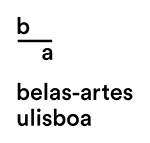Speakers
Maria Teresa Cruz
Maria Teresa Cruz teaches at the Communication Sciences Department of NOVA University of Lisbon (UNL), Faculty of Social Sciences and Humanities, in the fields Media Aesthetics, Contemporary Art and Image Theory. She is affiliated to the Research Center of Communication and Language that she directed between 2012 and 2015 and where she also coordinated the research line on «Art and Communication» between 2007-2012. She created and directed the Journal Interact – Art, Culture and Technology (2000-2006) and was also the director of the academic journal Revista de Comunicação e Linguagens (2010-2013) . Her present research interests focus upon cultural techniques, contemporary art and post-media aesthetics, in particular the expanded forms of the moving image.
Her most recent research projects focus on media arts and cultural heritage: she coordinated the Communication design of the Interpretative Center Gonçalo Ribeiro Telles, Sir Geoffrey Jellicoe award winner 2013 (Fundação Calouste Gulbenkian, Lisbon, 2013); the Museological Communication Design of the Côa Museum of Palelolithic Art – World Heritage, Portugal (2008-2010) ; the Section «Technological Arts in Portugal» of the project «Trends of Portuguese Netculture», together with José Gomes Pinto (Portuguese Foundation for Science and Technology, 2006); and the Media Arts Festival «Lisbon Interactivities», organized with the Lisbon township, where she also curated, with Isabel Carlos, the media arts exhibition «Mediations» (Palácio Galveias, Lisbon, 1997).
She has organised several seminars and conferences in the field of new media : «Cultural Technologies and Media Arts», together with José Gomes Pinto (speakers: Bernahard Siegert, Sybille Krämer, Peter Weibel, Goethe-Institute in Portugal, November 2013-January 2014); «New Media_New Practices» (speakers: Peter Weibel, Friedrich Kittler and Eric Alliez, Centro Cultural de Belém, Lisbon, 2005); «Representation in the XXIst Century» (speaker: Lev Manovich , Centro Cultural de Belém, 2006).
Oliver Grau
Oliver Grau was appointed first Chair Professor for Image Science in the German speaking countries at the Center of Image Science at Danube University in 2005. More than 280 lectures and keynotes at conferences worldwide, including the Olympic Games culture program and the G-20 Summit. Grau’s book Virtual Art. From Illusion to Immersion, MIT Press 2003 (Book of the Month Scientific American) is with approx. 850 citations internationally among the most quoted art history monography of the last decade (H-Index) and received more than 90 reviews. It offered for the first time a historic comparison and evolution in image-viewer theory of immersion and a systematic analysis of the triad of artist, artwork and beholder under the conditions of digital art.
Grau has received several awards and his publications are translated in 14 languages. His main research is in the history of media art, immersive images, emotion and immersion, the history of telepresence and artificial life and digital humanities. Grau was founding director of the MediaArtHistories Conference Series, (Banff 2005, Berlin07, Melbourne09, Liverpool11, Riga13, Montreal15). The volume MediaArtHistories, MIT Press 2007, received more than 50 international reviews. His volume “Imagery in the 21st Century”, MIT-Press 2011 expanded the context of Image Science. He conceived new scientific tools for image science and directed the project “Immersive Art” of the German Research Foundation (DFG) developing the first international archive for digital art (ADA, since 1999). Since 2005 Grau is also head of the database of Goettweig’s Graphic Print Collection, Austria’s largest private collection with 30.000 works, from Duerer to Klimt.
Grau is reviewer for international foundations (DFG, NSF, ARC, SNF, MPI, DAAD) and editorial board member of international journals. Grau was among the first elected members of the Young Academy of the Berlin-Brandenburg Academy of Science & Leopoldina, 2014 he received a doctor h.c.
Denis Pellerin
Denis Pellerin is a self-taught photo-historian with a passion for stereo photography. He was bitten by the 3-D bug while visiting a relative and chancing upon a stack of what seemed like two identical images stuck on a piece of cardboard. When he put one of these photos into a crossbow-like instrument he literally stepped into one of the rooms of the Tuileries Palace in Paris, over a century after it was burnt to the ground. For a few intense seconds Denis Pellerin felt actually transported into space and time, in a three-dimensional world. He borrowed the photos and the instrument, a stereoscope and, the next day, bought his first stereoscopic cards. He soon realised that there was next to no literature on the subject and decided to make it his specialty.
Denis Pellerin has been researching and learning about the history of stereo photography for over 25 years and has written several articles and books on the subject, both in French and in English. During his thirtieth year as a teacher, Denis Pellerin had the good fortune to meet and work with Dr. Brian May before being hired by the latter as the curator of his extensive photographic collection. Brian May and Denis Pellerin have now co-authored three books (including La Photographie Stéréoscopique sous le Seconde Empire and Diableries. Stereoscopic Adventures in Hell) and are currently working on a couple more publications while being also deeply involved in the various activities of the London Stereoscopic Society, re-created by Brian May in 2008.
Emília Tavares
Emilia Tavares was born in Lisbon (1964), where she lives and works. She is a senior curator (photography and new media) at the National Museum of Contemporary Art- Museu do Chiado, Lisbon, as well as a researcher and art critic. MA in Art History (Faculty of Social Sciences and Humanities at the University Nova of Lisbon). She was published several studies about Portuguese photography and visual culture, and as curator have presented several exhibitions, including the Portuguese representation at Photo España Festival (2009 and 2010). She publishes regularly in specialized newspapers, magazines and catalogues, and frequently gives lectures in cultural and educational institutions.
Thomas Weynants cancelled
Specialist in Early & Popular Visual Media. Author of the website ‘Early Visual Media Archaeology.’






